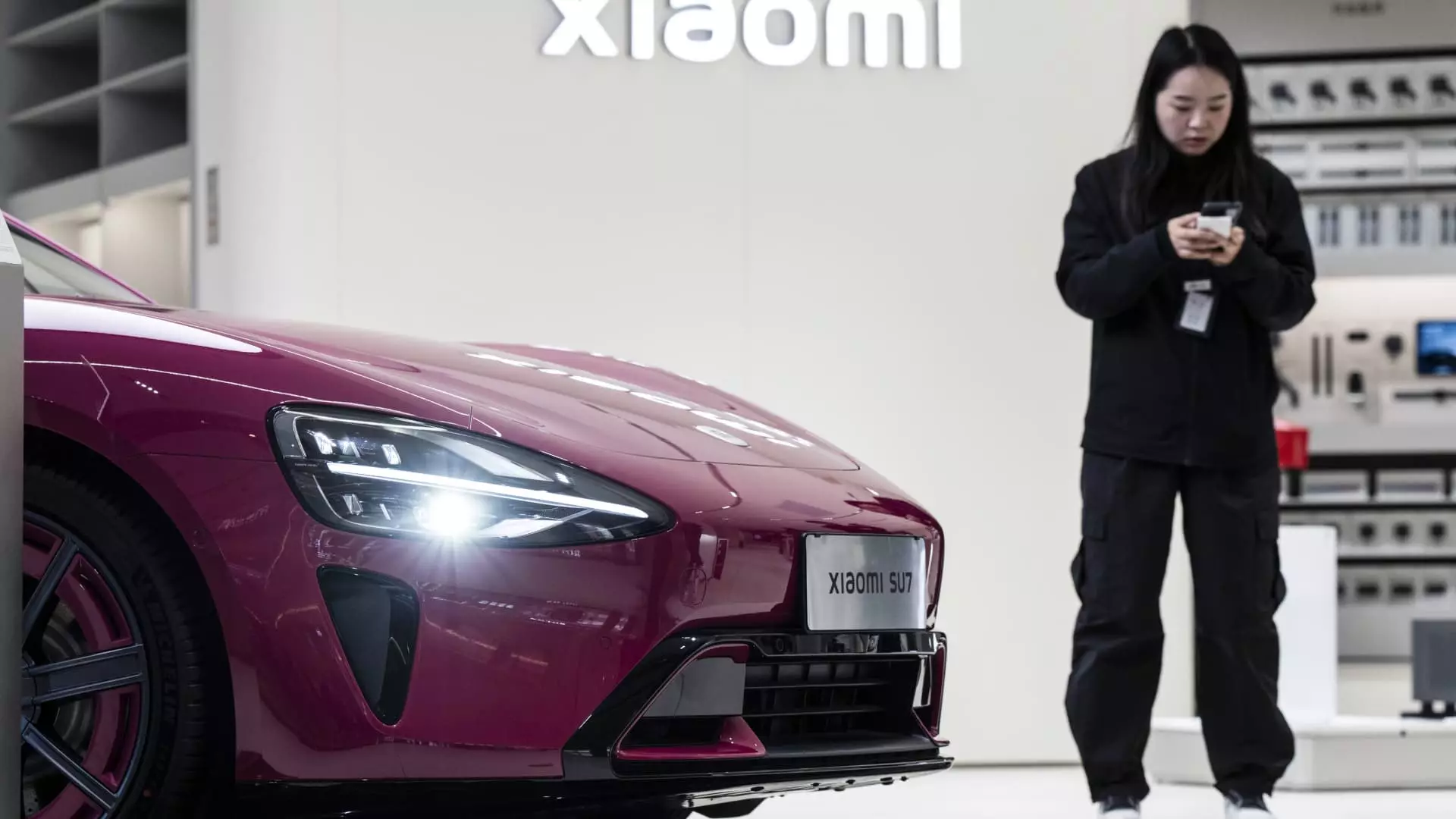March 2023 marked a milestone for several Chinese electric vehicle (EV) manufacturers, with companies like Xiaomi, Xpeng, and Leapmotor delivering record-breaking numbers of cars, all vying for a piece of the burgeoning market. The staggering figures—Xiaomi with nearly 30,000 vehicles, Xpeng delivering 33,205, and Leapmotor outperforming both at 37,095—illustrate a fierce competition among automakers who were once considered mere startups in the shadow of industry giants like BYD. What’s more, BYD still leads the charge with an impressive 371,419 vehicles sold, showcasing the evolving landscape and the pressures emerging players face to maintain sustainable growth.
However, this competitive environment doesn’t merely reflect a healthy market but raises significant questions around safety and corporate responsibility. For instance, Xiaomi’s flagship model, the SU7, reported a tragic incident on the road, resulting in three fatalities. This incident isn’t just a momentary blip for the company; it underscores grave challenges facing automakers that sell vehicles equipped with autonomous navigation features. As they push to deliver increasingly complex technologies, the moral and ethical implications cannot be ignored. This is a critical moment for the industry—gains in sales volumes must not come at the expense of human lives.
The Technology That Promises and Perils
As these manufacturers battle for dominance, they are not only competing on the number of cars delivered but also on the technological sophistication behind their vehicles. BYD has introduced its “Super e-Platform,” promising impressive ranges and rapid charging capabilities, pointing to someone’s technological advantage that translates into consumer confidence. Meanwhile, Xpeng’s continuous multi-month achievements exceeding 30,000 deliveries reflect a steadfast endorsement of their product from the marketplace.
But what good is superior technology if the ethical framework surrounding its use is dubious? The release of advancements in artificial intelligence and driver-assistance systems, as seen with BYD’s partnership with DeepSeek, raises concerns. The question remains: Is the pursuit of technology prioritizing speed over safety? We must question whether the industry’s rapid acceleration towards sophisticated, autonomous driving has outpaced our readiness to manage its complexities.
As Market Dynamics Shift, Who Will Be Left Behind?
While the headlines celebrate phenomenal monthly delivery numbers, a careful examination brings to light a troubling tale for certain companies like Nio and Li Auto. These brands are experiencing growth but are faltering in a landscape where their rivals are leaping ahead. With Nio delivering just over 15,000 units and Li Auto not exceeding this figure in multiple months, their struggle to keep pace with the new frontrunners evokes concern for investors and consumers alike. Are they sacrificing innovation and market adaptation for the sake of established reputation?
Additionally, many competitors have yet to breach the 20,000-unit mark—a stark reminder of the fragile nature of emerging markets. For companies like Geely-owned Zeekr, which reports smaller increases year-over-year, this may signal more extensive systemic issues that need to be addressed. Thus, while delivery records might allure new investments, they do not guarantee long-term viability.
The Consumer’s Dilemma: Choices in a Crowded Market
As the competition heats up, consumers find themselves in a labyrinth of choices, each brand touting its unique innovations and selling points. Yet with so much variety, there lies a real risk of overwhelming potential buyers who may struggle to discern which vehicle meets their needs for both performance and safety. The insights offered by these brands must be critically weighed against their incidents, as consumers become increasingly conscious of the consequences their decisions can have.
This crowded market also opens avenues for ethical discourse about environmental impact tied to the EV landscape. As Chinese cities grapple with pollution and climate change, an influx of electric vehicles appears to be an attractive remedy. However, the question arises: Are we simply substituting one form of environmental damage for another? A shift to electric cars does not blanketly assure a green future—consideration of the entire supply chain is essential if manufacturers truly aspire to make a positive impact.
What Lies Ahead: Innovation or Regulation?
The current surge creates a compelling narrative of innovation and ambition in the Chinese electric vehicle industry. The seeming frenzy for delivery records, attractive as it is to stakeholders, must also turn its gaze toward sustainability, regulation, and ethical advancements. As regulatory bodies worldwide increasingly scrutinize the capabilities of autonomous technologies, the onus lies on manufacturers to tread thoughtfully in how they market and develop their products.
What will the future hold? Will we see a harmonious balance between rapid advancement and prudent oversight, or will the drive for sales numbers continue to eclipse grave concerns about safety and ethical responsibility? The next chapter in the EV saga remains to be written, and it promises to be as complex as the vehicles themselves.

